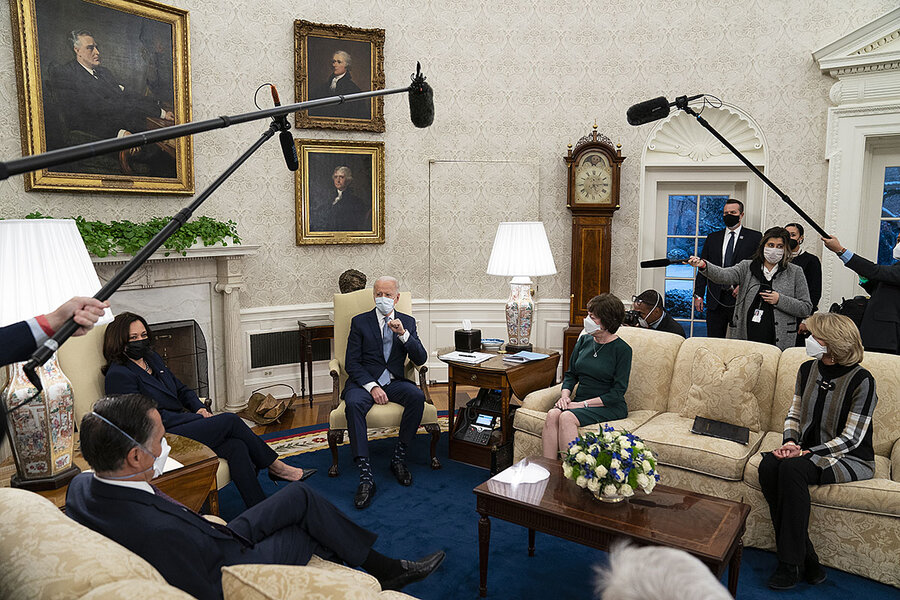
In the aftermath of the Capitol riot, some Republicans say the party needs to recover a lost principle of democratic leadership: humility and a sense of service.
Leaders in America have long faced a built-in challenge – a tension woven into the fabric of their nation’s version of democracy.
Individual elections are winner-take-all, and competition in a two-party system can mean polarization and fierce struggles for influence. Yet the nation’s founders were fundamentally skeptical toward concentrated power. They sought to diffuse the necessary authority invested in individuals, institutions, or even more populous regions of the country.
The Madisonian principle of checks and balances – designed to thwart a leader who seeks undue power – implicitly calls for leaders who can put the needs of democracy ahead of their own ambitions.
In the 2020 election and its aftermath, both this ideal and the constitutional checks on executive power were sorely tested, as President Donald Trump sought to overturn the outcome of the vote. In the aftermath, a sitting president was impeached a historic second time and his trial begins in the Senate next week.
Now, as politicians – and Republicans, in particular – are calibrating how to move forward, these principles from the nation’s founding remain vital. On one hand, they show the power of the politics of self-interest in a time of polarization. But they also highlight how dearly democracies depend on the opposite qualities to survive: humility and an unselfish spirit of service.
“Instead of it just being, you know, about me, me, me, or being a sole independent operator” in places like the Senate, “or instead of trying to be the great savior of the country, how do you see yourself in the context of other people?” says former Sen. John Danforth, a Missouri Republican who served three terms through the mid-1990s. “Do you have sufficient humility so that you’re not somebody who’s just trying to roll over people? Are you able to love your enemy? But we shouldn’t even think in terms of enemies – do you love your opponent?”










